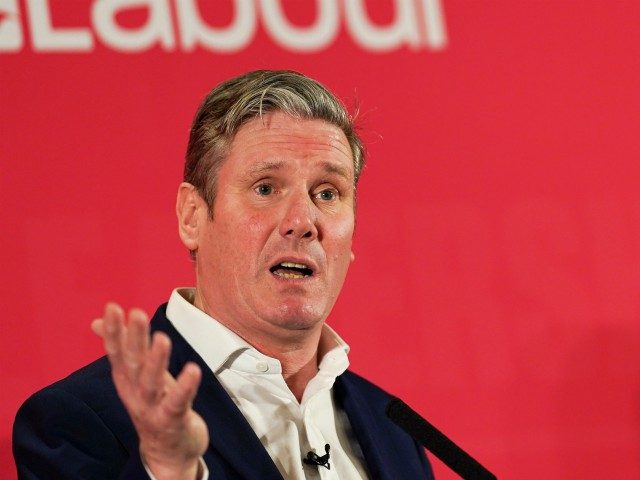The leader of the left-wing Labour Party has claimed that Prime Minister Boris Johnson introducing a White House-style televised press briefing would risk “unbalancing the political discourse”.
In a bid for greater transparency — and what would reduce the mainstream media’s monopoly on access to political leaders on a daily basis — Boris Johnson announced the new televised press briefings.
Hitherto, the prime minister’s spokesmen, civil servants, would brief journalists off-camera twice a day. But the afternoon briefing will be televised and mediated by someone appointed by the prime minister, much like how the American President appoints his own press secretary. They are expected to be launched in October from Number 9, Downing Street.
The move, in part, was inspired by the daily coronavirus briefings televised so that Britons could be better informed on the progress of managing the pandemic. The 7-days-a-week briefings themselves were launched after weekend breaks in briefings from Downing Street saw the government lose grip of political narratives in the early days of the virus.
Prime Minister Johnson told LBC radio last week: “People have liked a more direct, detailed information from the government about what is going on.”
He added: “We do think that people want direct engagement and want stuff from us, and so we’re going to have a go at that.”
While the prime minister said that he would not be at every press briefing, he said that he would “pop up from time to time” to take questions himself.
The communications shake-up also comes as Downing Street seeks to reduce the bloated bureaucratic Civil Service, with government departments set to lose their own press officers in favour of a streamlined centralised Cabinet Office one.
The prospect of a televised briefing being arbitrated by someone other than a career bureaucrat disturbed Labour leader Keir Starmer.
Speaking to London’s Evening Standard on Tuesday, Sir Keir claimed it was a “political move”.
“It’s obviously a political move. Nobody can quarrel with greater transparency but this is political and one of the greatest things in our democracy is balance and hearing both sides.
“We are exploring, and keen to explore, just how the political balance is maintained if you move to this style of briefing. That’s the risk of it, that it unbalances the political discourse,” Sir Keir said.
Sir Keir has however not suffered for media attention recently, after performing yet another u-turn on his support for the Marxist Black Lives Matter movement. An ardent supporter of BLM, he posed for pictures whilst he taking the knee at the beginning of June.
At the end of last month, after BLMUK tweeted antisemitic and anarchistic messages, he claimed to be against Black Lives Matter’s core principle of abolishing the police — a position which the group has publicly stated for several years.
This week, Starmer u-turned again when he said that he did not regret taking the knee, and would be taking “unconscious bias training” after daring to call Black Lives Matter a “moment”.
He has also been criticised for his inconsistent treatment of Labour MPs accused of antisemitism. Inheriting a party plagued by accusations of anti-Jewish hatred, Mr Starmer was quick to fire from his front bench colleague Rebecca Long-Bailey who shared an article on Twitter which included the antisemitic trope that the Jewish state of Israel was connected to the death of black American George Floyd.
However, Sir Keir was criticised for not taking similar action against Shadow Communities Secretary Steve Reed MP, who described property developer Richard Desmond as “the puppet master to the entire Tory cabinet” — ‘puppet master’ also being considered an antisemitic trope.
A Labour spokesman said on Monday after Mr Reed had apologised: “Steve deleted the tweet and did not mean to cause any offence.”

COMMENTS
Please let us know if you're having issues with commenting.